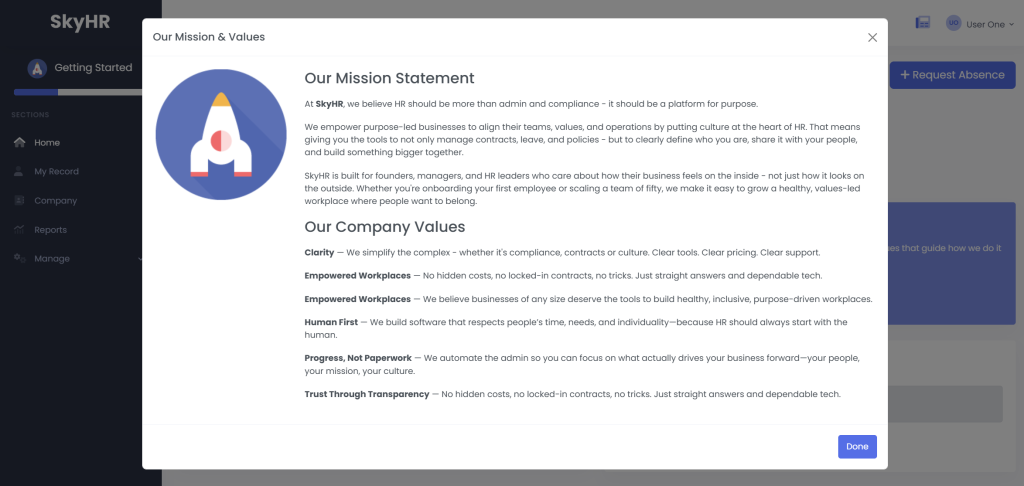Why Mission First HR Systems Help Keep Staff

Many small businesses across the UK are facing a familiar headache. They want to hold on to good people, but budgets are stretched, recruitment is slow and employee expectations keep rising. Pay increases are not always on the table, and yet the cost of losing a strong performer can be painful. It is no surprise that retention is one of the biggest themes appearing in HR conversations this month.
What is becoming clearer is that money alone is not doing the job. People choose to stay in places where they feel valued, connected and part of a shared purpose. That is where mission and values start to matter more than ever.
Why mission and values count when pay cannot stretch
When a business cannot compete on salary, it needs to compete on meaning. Employees want to feel that their work contributes to something worthwhile. They want to trust the organisation they work for, see fair treatment, and feel their efforts make a difference. A clear mission and a set of lived values give people that sense of direction. They create the belonging and psychological safety that many UK HR blogs are highlighting this month.
The challenge is that most businesses talk about mission and values during recruitment or induction and then let them fade into the background. People do not experience them day to day. This is where retention starts to slip.
The problem with most HR systems
Traditional HR systems are built for forms, records and compliance. They do useful work, but they do not help employees feel more connected to the business. In many cases they make the relationship feel even more transactional. A request for holiday becomes a date in a spreadsheet. A performance conversation becomes a checklist on a screen. Nothing in the process reinforces why the company exists or what it stands for.
With retention now a major concern for UK employers, this gap is becoming more visible. HR teams are asking for tools that support culture rather than just admin.
How HR tech can strengthen belonging
A mission led HR system works differently. It places purpose and values at the heart of everyday interactions. This means the organisation does not need to rely on posters, induction slides or a once a year strategy meeting to remind people why they are here.
Small touches can make a large difference. For example:
- New starters see the mission and values woven into their onboarding steps, not tucked away in a PDF.
- Time off requests feel supportive rather than bureaucratic, because communication is clear and human.
- Managers can recognise team members in a way that links contributions to values, not just tasks.
- Team feedback becomes richer because it is framed around what the organisation believes in.
- Regular HR tasks reinforce the idea that people are part of a shared journey, not just completing transactions.

These moments help employees feel seen and connected. Over time that creates loyalty, especially in smaller teams where culture is shaped through countless small interactions.
A simple framework for improving retention through purpose
Any UK SME can start putting mission led HR into practice with three steps.
Step one: be clear about what you stand for
Write your mission and values in language that feels real. Avoid slogans. Make sure staff understand what these ideas look like in day to day behaviour.
Step two: build purpose into everyday processes
Look at onboarding, performance conversations, time off, recognition and team communication. Ask whether these interactions help people feel connected to the mission or whether they get in the way. Adjust where needed and keep things simple.
Step three: use HR data to spot early risks
Patterns in absence, late reviews or low engagement can reveal that someone is drifting. Address it early with supportive conversations. Retention improves when small issues never grow into large ones.
The bottom line
Keeping people is almost always cheaper and easier than replacing them. In a tight labour market, purpose becomes a powerful differentiator. A mission led HR system gives small businesses a practical way to bring their values to life without needing a large budget. When employees feel connected and supported, they stick around. That is good for culture, good for customers and good for the bottom line.